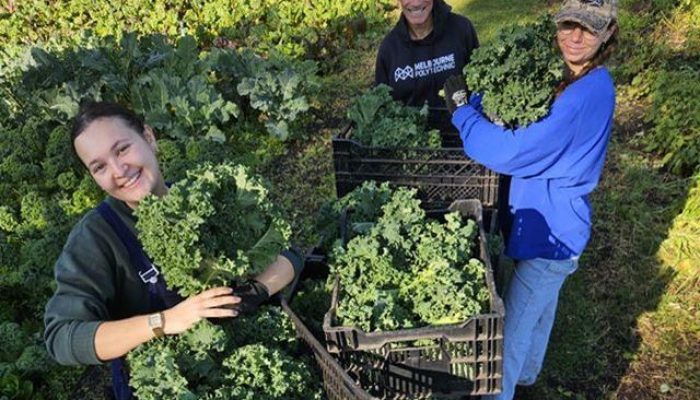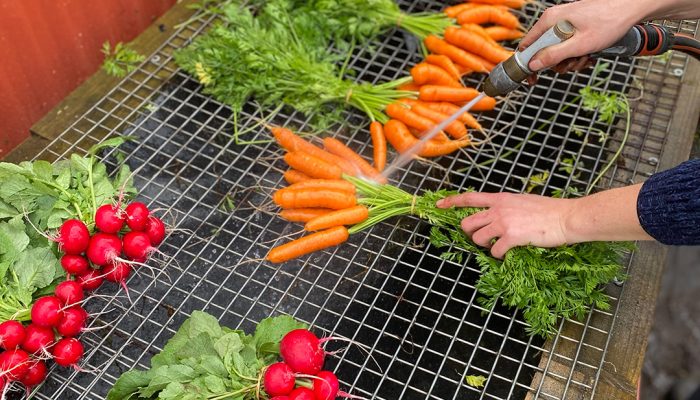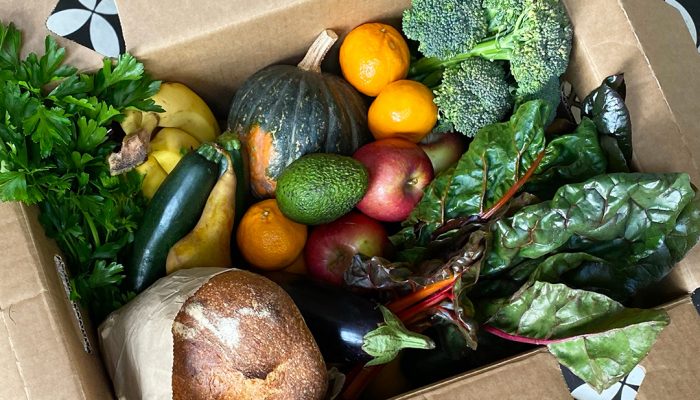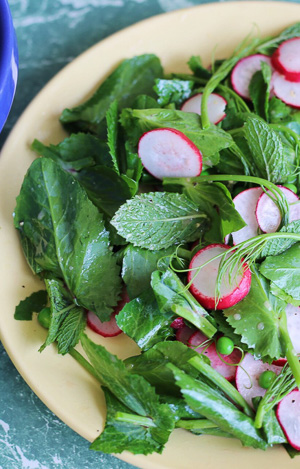Should I wash my fruit and veg? We dish up the dirt.
Washing fruit and vegetables doesn’t need to be complicated.
It’s not just the unwelcome crunch of the farm’s sandy soil, trapped in your leek or lettuce, that we want to avoid. (Although beach picnic fails need not be repeated in the kitchen). Properly washing your fruit and veggies before eating is really important, and there are a few good reasons why.
Here we clear up any mess-conceptions, and why a quick rinse with water is usually your best bet.

Why should you wash your fruit and veg?
1. Germs and bugs on fresh produce
Soil residue on produce can contain microorganisms and pathogens that can pose significant health risks, especially if eating the fruit and veg raw.
As we’ve been reading here and here, most people aren’t usually impacted by germs in the soil, but if certain pathogens like E. coli and Salmonella come into contact with the produce, it can certainly make people sick.
Rinsing produce can reduce our exposure to any pathogens present, so it’s a quick and simple habit that’s important to remember.
Heating and cooking will also kill pathogens, as outlined in this advice on food safety.
Natural debris and ‘friendly bugs’ can also be present on fresh, quality produce, and we want to rinse these before eating, too. Though they’re always a good sign that the produce isn’t soaked in sprays, it doesn’t mean we always want the extra protein in our salad.
2. What about chemical and pesticide residue?
Thankfully our organic growers and farmers work hard to avoid the use of synthetic pesticides, which is not permitted for organic certification.
But produce cultivated using Integrated Pest Management (IPM) techniques – which minimises pesticide use by encouraging beneficial microorganisms and a healthier farm ecology – can retain some chemical residues.
Again, a good wash is our friend here. Rinsing produce with water will help to wash away surface residues and reduce their presence.
Cooking can also help to break down some residues from chemical pesticides, but shouldn’t replace a wash!

The power of a good rinse
After all this talk of washing away the dirt and germs, it’s not surprising that there are products out there designed to help you rinse your food with extra confidence. You’ll see detergents, sink sanitisers, and vinegar based cleaners. But are produce cleaning products a waste of money?
For us, we champion a life filled with the freshest fruit and veg and the shortest supply chains possible. We take the side of simplicity. We don’t sell special fruit and veg cleaning products, and since washing with water is so effective we don’t see much reason to bother making homemade veggie wash with detergent or vinegar, which may also linger on the produce we are eating.
Here are good habits we DO encourage:
Again, old school simplicity and common sense goes a long way:
- Wash your hands properly before and after handling fresh fruit and veg.
- Always work on clean surfaces with clean, dry knives and utensils.
- Avoid cross-contamination with uncooked meat and fish.

How and when to wash your produce
So, you’ve just got home to a delivery of fresh produce. Do you wash your veg right away? When should you rinse the salad leaves? How do you keep precious berries fresh? And what to do with those grubby outer leaves of cabbage and cauliflower?
All good questions. Here’s our washing advice!
- Wait to wash. Generally we advise that you wash your fruit and veg just before eating. This helps to avoid any excess moisture deteriorating the produce in storage.
- Firm produce, soft brush. A lot of root vegetables with firm skin, as well as fruits like apples and lemons, can be gently washed with a soft-bristle brush to help get into the pores and wrinkles that are harder to wash.
- Be gentle with delicates. A gentle stream of water and your clean hands are all that’s needed for most washing, particularly for delicate produce.
- Love your leafy greens. Greens love a good bath. Take off any outer leaves that are too damaged or old, and submerge in cool water to loosen any dirt and friendly bugs. Give a good swish, drain, then rinse with fresh water.
- Revive back to life. The above advice also applies to sad, dehydrated leafy greens (and those bendy carrots at the back of the fridge!). Sometimes a cool hydrating ‘bath’ rather than a ‘shower’ can reinvigorate for a longer life.
A full guide to our produce storage tips can be found just over here in our Fruit and Veg Storage Guide. It’s a comprehensive and helpful resource for keeping produce fresh and nutritious. Dive in for all our waste wise tips!

